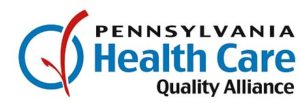Feds OK Medicaid Money for Housing
The Obama administration has informed state Medicaid programs that they may use federal Medicaid money to help the chronically homeless obtain housing.
While a June bulletin to state Medicaid directors technically only clarified existing policy, it signaled states that the administration will be receptive to Medicaid waivers that propose using Medicaid funding to help the homeless obtain housing.
Increasingly, state Medicaid programs have been finding that helping the homeless with housing is a key to improving their physical and behavioral health and can offer later savings as the individuals who have received such assistance live more stable lives, especially as more homeless people qualify for Medicaid benefits in states that have expanded their Medicaid programs.
 The Safety-Net Association of Pennsylvania (SNAP) has long identified homelessness and inadequate housing as challenges that urban safety-net hospitals face in the low-income communities they serve.
The Safety-Net Association of Pennsylvania (SNAP) has long identified homelessness and inadequate housing as challenges that urban safety-net hospitals face in the low-income communities they serve.
To learn more about why officials believe housing is an important part of addressing the health care needs of the homeless and how some programs attempt to provide such assistance, see this Stateline report.








